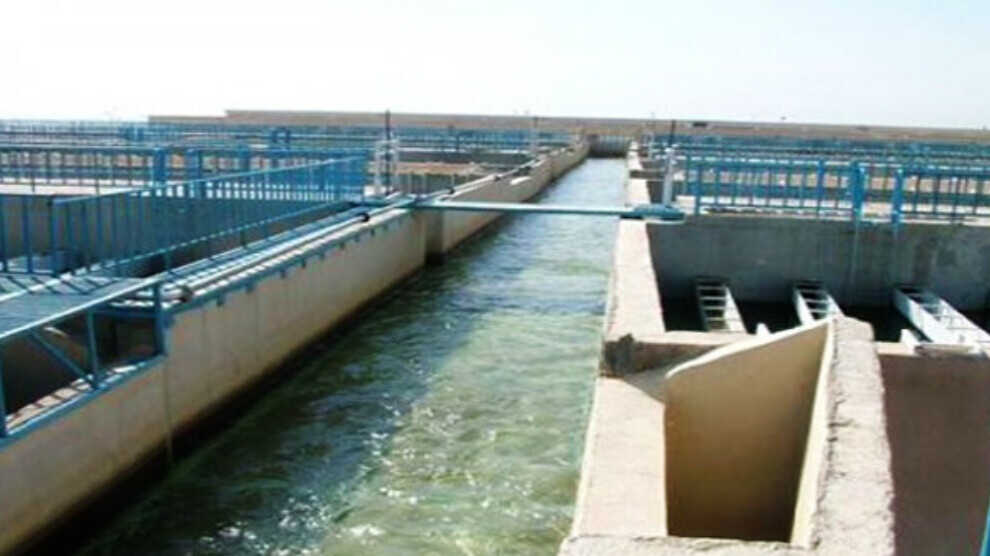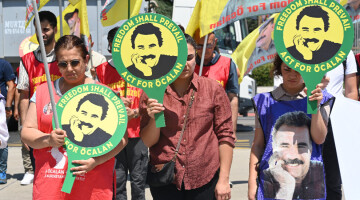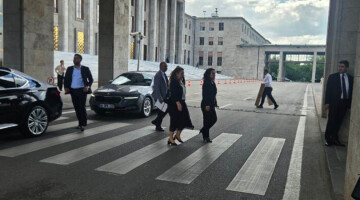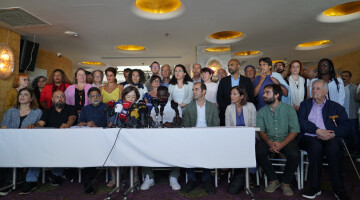UK activists, academics, lawyers, journalists wrote a letter to Foreign Minister Liz Truss to urge her immediate action to address the worsening humanitarian crisis in northern and eastern Syria where tens of thousands now lack water due to the actions of Turkey and its proxies following their military occupation of border areas in 2019.
The signatories underlined that "Turkish-backed militia have deliberately cut off water supplies to the 500,000 people who live in al-Hasakeh governorate, with severe consequences for the lives and livelihoods of the local people. As you will be aware, cutting off water to civilian populations by parties to an armed conflict is a war crime. As a permanent member of the UN Security Council, the UK has a privileged responsibility and overwhelming obligation to investigate and take action."
The letter continued: "As of 9 September 2021, the station had not pumped water since 21 August. Although Turkey blames the stoppages on a failure by the Syrian authorities to provide electricity, Human Rights Watch has confirmed that there continues to be enough electricity to operate the water station.
It would appear clear that the sole purpose of the stoppages of the Allouk water station has been to exert pressure on the local population, which is predominantly Kurdish, with grave repercussions for their health and well-being. This is a flagrant breach of international law, which prohibits parties to an armed conflict (which Turkey’s invasion of the region constitutes) from depriving civilians of objects indispensable to their survival, which would include drinking water and water for irrigating crops."
The letter also added that "the problems have been exacerbated by Turkey’s repeated breaches of its international customary law obligations to ensure adequate downstream flows of the Euphrates river, which it shares with Syria and Iraq. Because of dam-building and irrigation schemes in Turkey, the downstream flow of the river has been reduced by 40–45 per cent since the early 1970s, with Turkey deliberately using its storage capacity to exert pressure on its riverine neighbours, particularly in times of conflict. This Spring, as documented by the NES Forum (a coalition of
non-governmental organisations), water flows to the Tishreen dam were half those required to ensure its functioning, leading to its partial closure. 5 The reduced flow has directly impacted the availability of water for the 5.4 million people, primarily in Deir-ez-Zor, Raqqa and Aleppo governorates, who rely on the River Euphrates for their everyday needs. Combined with lower-than-average rainfall, reduced flows have severely affected crop production: the OCHA estimates that irrigated crop output this year may have been reduced by 25%. High rates of food insecurity and malnutrition are a direct consequence."
Finally, the letter urged the UK Foreign Minister to "To urge Turkey to withdraw immediately and permanently to a sufficient distance from th Allouk water station to enable the Autonomous Administration of North and East Syria (AANES) to safely repair and operate a vital water intake serving half a million people.
- To urge Turkey to discharge into Syrian rivers at least the amount of water required under existing agreements in order to resolve the humanitarian crisis.
- To investigate the actions of the Turkish military in stopping pumping from the Allouk station and to sanction those held responsible for any war crimes, including through the use of asset freezes.
- To increase humanitarian aid to Syria, especially in areas suffering from water scarcity.
- To start channelling development cooperation funds to the Autonomous Administration and NGOs in north-eastern Syria, which are committed to democracy and equality."
The signatories are as follows:
Nicholas Hildyard, The Corner House
Dr. Thomas Jeffrey Miley, University of Cambridge
Dr Felix Padel, Research Associate, Centre for World Environment History, University of Sussex
Margaret Owen OBE, barrister, Widows for Peace through Democracy
Federico Venturini, PhD, University of Udine (Italy)
John Hunt, journalist
Connor Healy, Independent Researcher
David Morgan, journalist
Bert Schouwenburg, International trade union advisor
Estella Schmid, Peace in Kurdistan
Campaign against Criminalising Communities (CAMPACC)
Pishtiwan Jalal, President, Kurdish Alliance of North America
Kristy Perano, Co-President, Kurdish Alliance of North America
Dr. Ebad Rouhi, Department of Law, Sanandaj Brach, Islamic Azad
University, Sanandaj, Iran.
Xeyal Qertel, Founder of New York Kurdish Film and Cultural Festival
Dr. Nicholas S.M. Matheou, Armenian Institute, London
Roz Bird, Navigate Cooperative – Facilitation for Social Change
Marko Ulvila, Finland
Dr Sarah Glynn,Scotland
Dr Andrea Brock, Lecturer in International Relations Centre for Global Political Economy, University of Sussex, UK
Dr Anthony Ince, Senior Lecturer in Human Geography, Cardiff University
London Kurdistan Solidarity
Ersilia Verlinghieri, Research Associate, University of Oxford
Prof. Andreas Bieler, Professor of Political Economy, School of Politics and International Relations, University of Nottingham
Frank Moulaert, Em. Professor of Spatial Planning Planning & Development, Faculty of Engineering, Heverlee, Belgium
Solidarity Economy Association, UK
Mahvish Ahmad, Assistant Professor in Human Rights and Politics, Department of Sociology, London School of Economics and Political Science
Trevor Rayne Fight Racism! Fight Imperialism!












